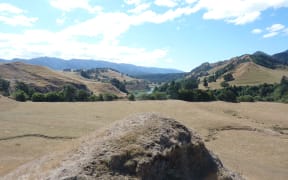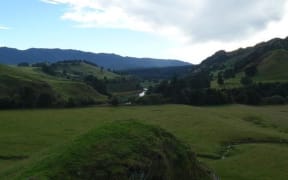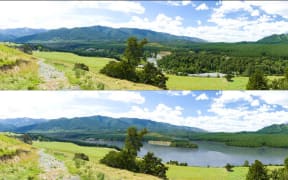The chairman of the Hawke's Bay Regional Council says if the council can't sell the minimum amount of water required to make the Ruataniwha dam viable, then it won't go ahead.
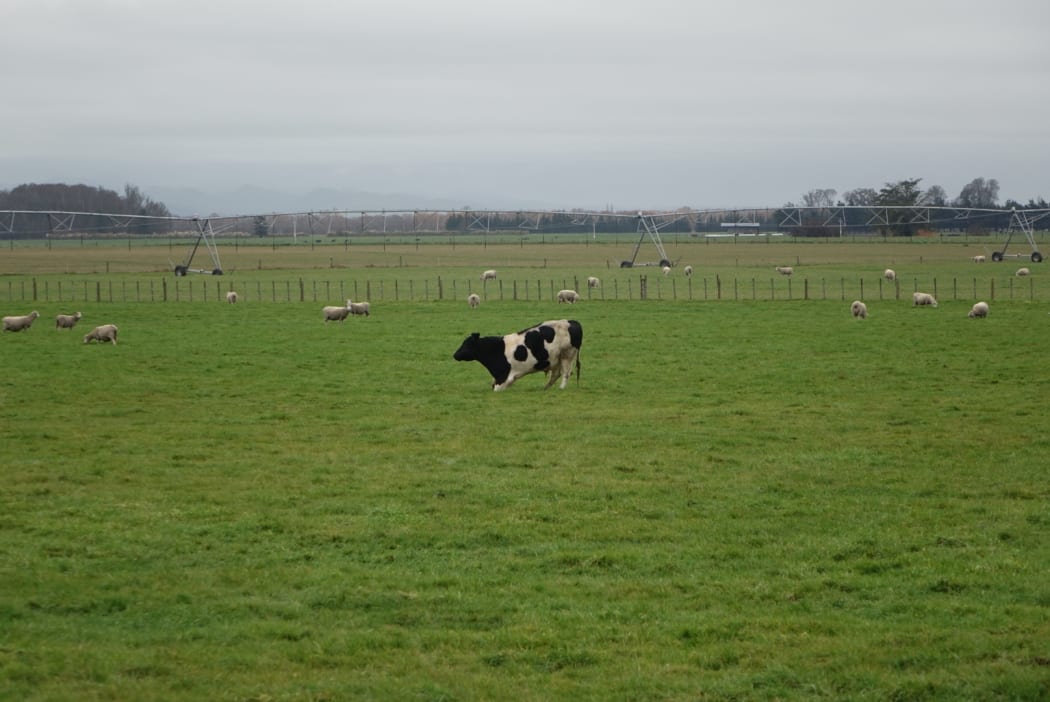
The Ruataniwha Plains which would be irrigated by the dam. Photo: RNZ / Peter Fowler
Farmers in the footprint of the proposed $600 million water storage project in Hawke's Bay say they will not buy the water because it is too expensive and it would make their farms unprofitable.
Hawke's Bay Regional Council is developing the dam, which will hold 96 million m³, but for construction to begin it must pre-sell at least 40 million m³ of water.
But chairman Fenton Wilson said the council's investment company HBRIC has sold only about half that amount.
Mr Wilson said the council was still waiting for a lot of things to line up.
"Unless we get our trigger point, if you want to call it that, which is 40 million m³ [of water] then it won't proceed."
Mr Wilson said many farmers were yet to do due diligence on what the dam would mean for their farm.
Radio New Zealand News visited six farmers in area that will receive water from the proposed water storage scheme, and all said they were not signing up to buy the water because it was not financially viable.
None wanted to be named because they feared a backlash from the Central Hawke's Bay community for being perceived to be anti-dam. All supported water storage, but said the numbers did not stack up.
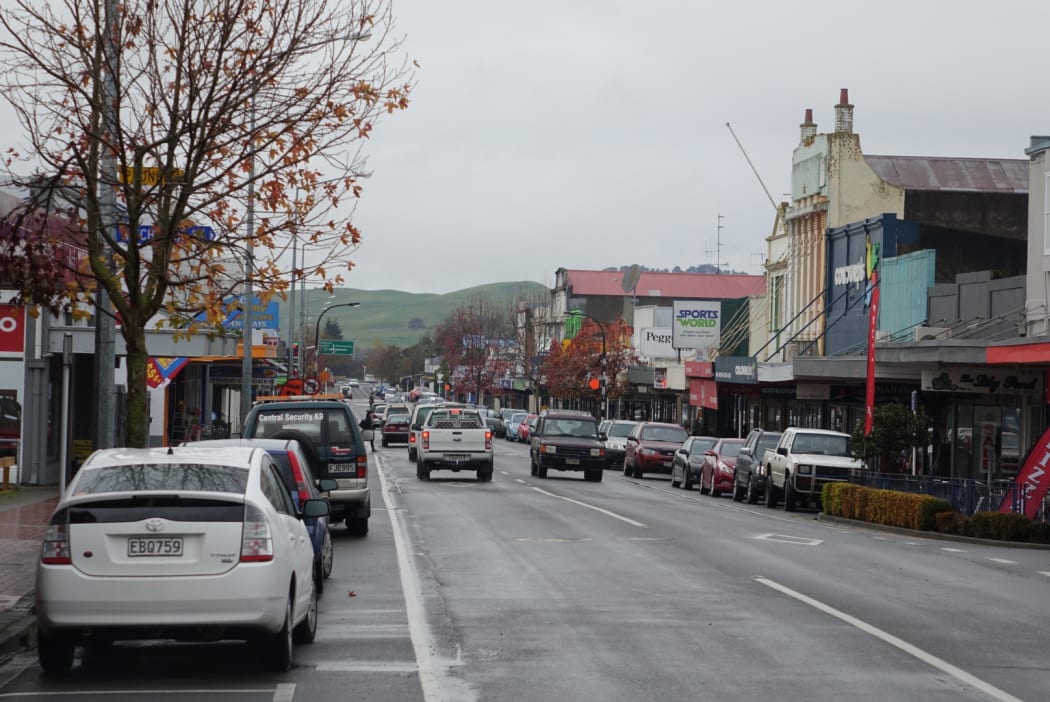
Waipukurau is the largest town in the Central Hawke's Bay District and businesses hope the economy will get a boost from the Ruataniwha Dam. Photo: RNZ / Peter Fowler
They said the dam backers appeared to be asking farmers to take a leap of faith that after the dam was built, the markets and products would miraculously appear.
"(A banker who visited me) was very positive about the outcomes of having a dam in place but actually (said) if you were looking to support whether or not it made sense financially it was very difficult to do," said one farmer.
"It was almost like you have to have faith in the fact that you would get a successful long term outcome and believe in it - almost like having faith in its success rather than proving its success," he said, adding as a business person he made decisions on hard numbers, not faith.
The farmer said there were business cases put up for the Ruataniwha Dam that do work, but the question was whether the underlying assumptions used in those examples were supportable in every case.
Another farmer said he investigated converting to dairying based on a milkfat payout of $6.50 per kilogram of milk solids. It would cost him between $8 million and $10 million to convert the farm and after interest and expenses he was looking at a $200,000 annual profit, which was too risky.
He said the break even point was $5/kg of milk solids. ANZ recently reduced its forecast payout to dairy farmers for the 2015/16 season to $4.50/kg of milk solids.
A cropping farmer said his investigation into intensification using Ruataniwha water showed he would go from being profitable to making a loss.
He said the council told him not to worry about what he is doing now, because he would be growing things with irrigation that he had not even thought of yet.
"But I said I thought someone would have driven up the driveway to show me the opportunity if there was such a demand. What business model puts an infrastructure in without having an end use for it?"
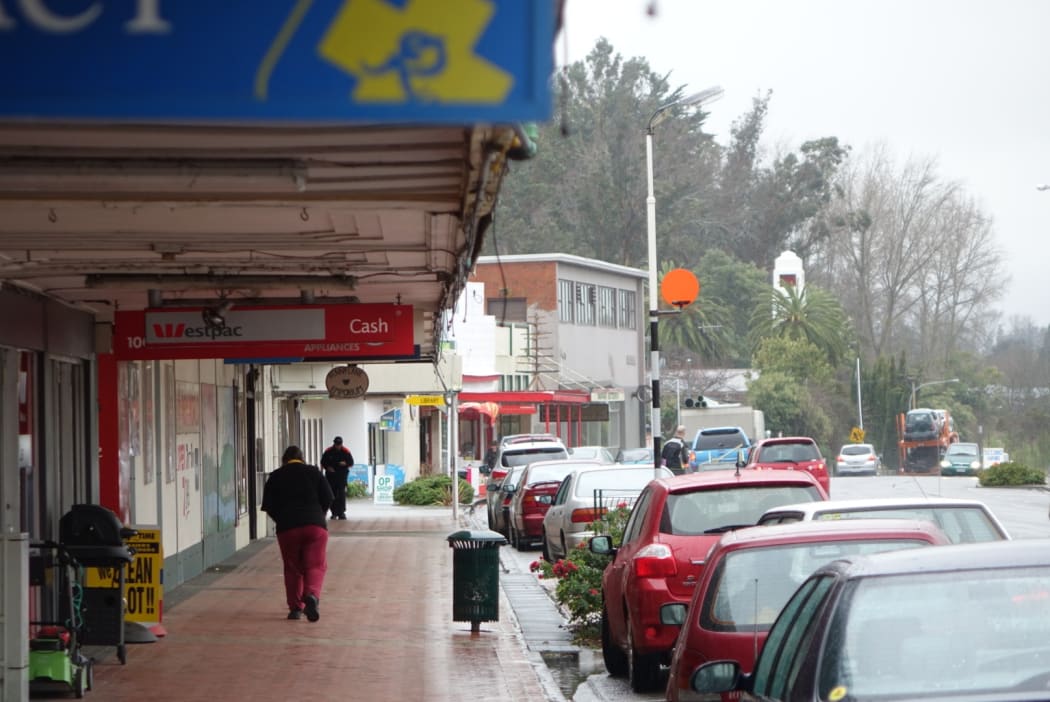
The Central Hawke’s Bay town of Waipawa hopes the Ruataniwha Dam will revitalise the central business district. Photo: RNZ / Peter Fowler
The farmer said the company that buys his crop said even if he grew more of his current crops under irrigation the company would not buy it because it was at full capacity.
The farmers said the price of the water at around 26 cents m³ was too expensive, and that was a major reason why farmers were holding back.
They indicated they were under a great deal of pressure. They have the regional council contacting them about buying the water, and different banks were literally banging on their doors offering to lend them money.
The Board of Inquiry into the Ruataniwha Dam set a limit on the amount of nitrogen that can leach into rivers from farming activities, which was already exceeded in a large part of the catchment.
The farmers said the council was now telling them the Board of Inquiry gave the Ruataniwha Scheme a universal consent, and if they signed up to buy the water then they did not have to worry about nitrogen limits.
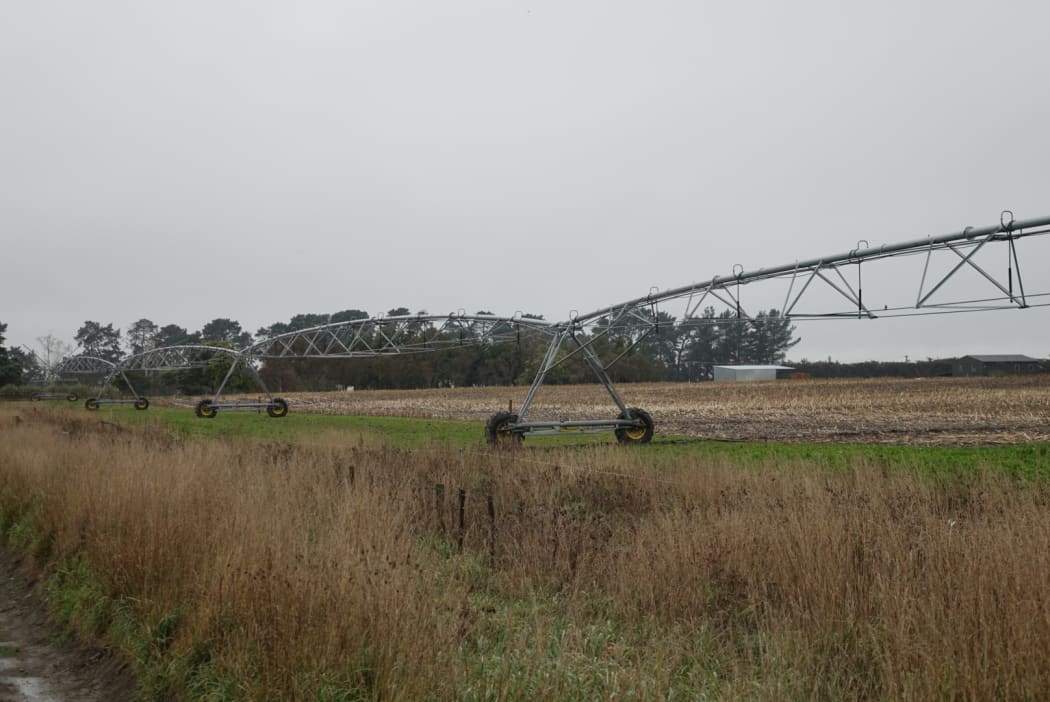
Some irrigation already takes place on Ruataniwha Plains. Photo: RNZ / Peter Fowler
However if the farmers do not buy the water, the council was telling them it was possible they would not get a resource consent because the nitrogen limit was already exceeded.
The farmers said they were gobsmacked at what they felt was an ultimatum to 'buy the water or else' and questioned whether that was the intent of the Board of Inquiry.
The farmers said most of the rural support industries and business people in Central Hawke's Bay were in a type of gold rush fever where they saw the region's economy being lifted by the dam, and took a dim view of farmers who were reluctant to buy the water.
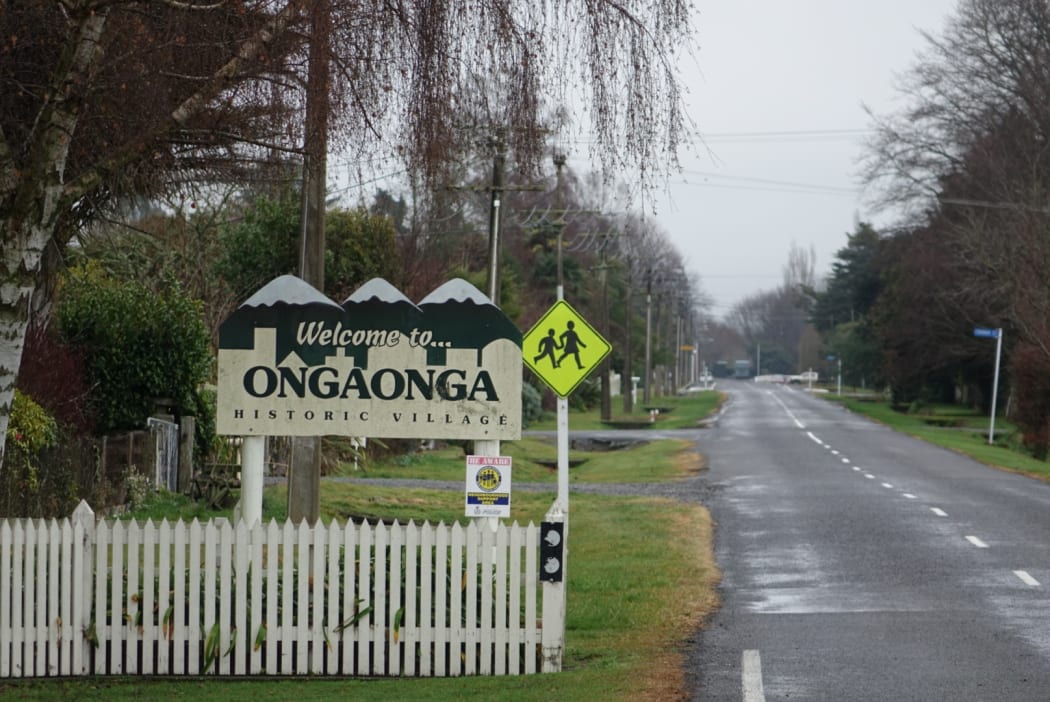
Like Waipawa, businesses in Ongaonga in Central Hawke's Bay hope the water storage project will provide a much needed boost. Photo: RNZ / Peter Fowler
But they pointed out that none of these support businesses cheerleading the dam had to take any risk and if the farmers drowned in the debt they had to raise to join the scheme, someone else would buy the farm, and the support industries would still have customers.
"That's the thing that's a little bit irksome," said one farmer.
"I am in favour of the dam because for Central Hawke's Bay it would be a tremendous thing, but the farmers take the whole risk. And in my late 60's do I want to take that risk?"
A moment later he answered his own question. "No."

